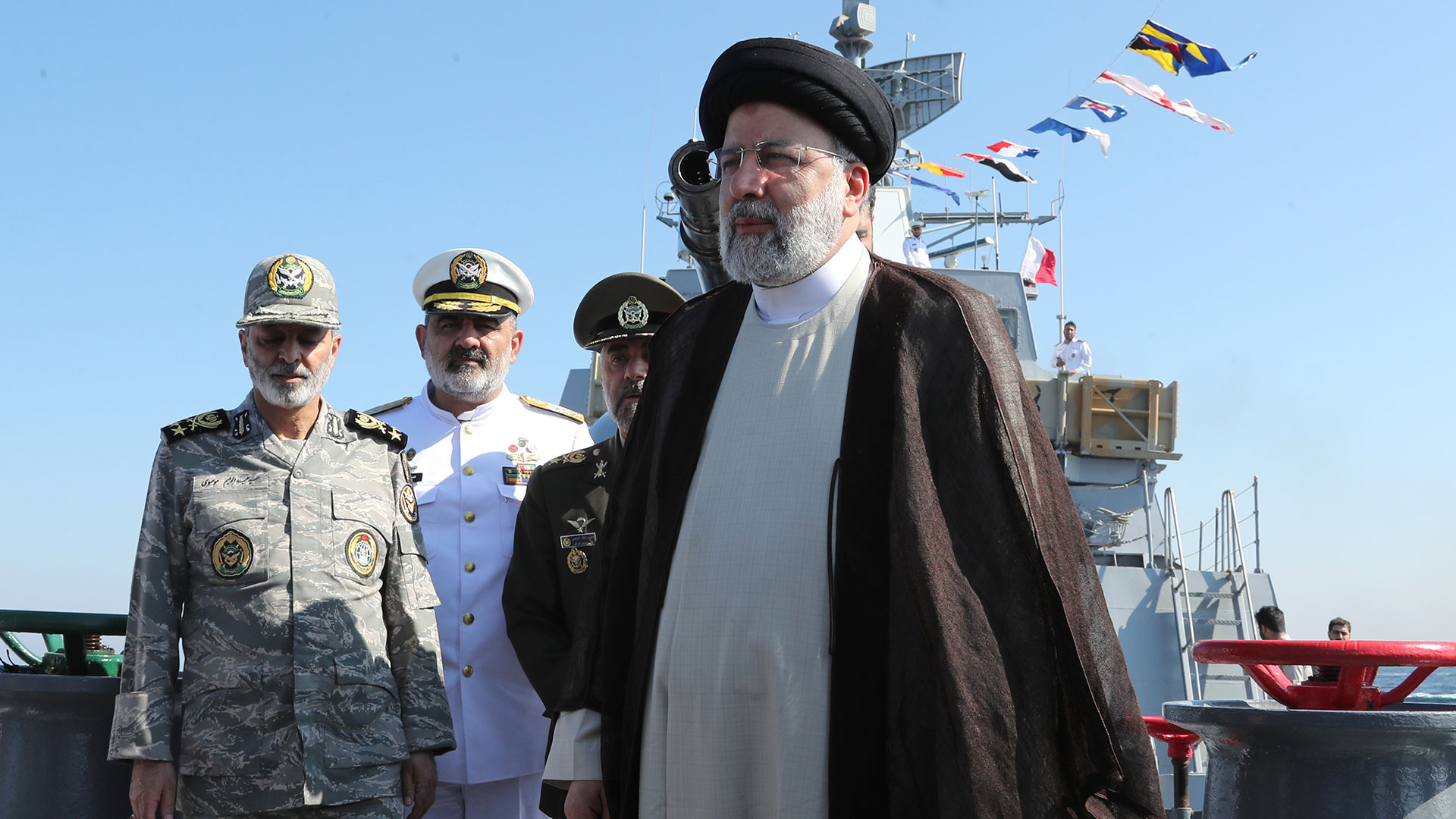- Iran's Supreme Leader Ayatollah Ali Khamenei threatened a "crushing response" to U.S. and Israeli actions, following an Israeli airstrike on Iranian military sites. Times of Israel
- Israeli airstrikes damaged several Iranian facilities, including missile production and air defense sites, reportedly impacting Iran’s missile capabilities. BBC
- The Pentagon announced additional deployments of fighter jets and missile defense systems to the Middle East, citing regional security concerns. NYTimes
- In response to escalations, the United Nations and neighboring countries, including Saudi Arabia and Qatar, called for de-escalation to prevent further conflict. The Guardian
- Iranian officials stated that air defense systems were damaged, yet downplayed overall impact, while Israeli officials claimed successful, precise strikes against military targets. AP News
From Israel's perspective, the airstrikes on Iranian military facilities are a necessary and defensive measure against what they view as an increasing and direct threat from Iran and its regional allies. Israel sees Iran's missile and nuclear capabilities as a significant risk to its security, particularly after recent missile attacks targeting Israeli territory. By targeting Iran's missile production and air-defense systems, Israel aims to weaken Iran's ability to support armed groups like Hezbollah and Hamas, which have conducted attacks on Israel. Israel's actions are portrayed as preventive, aiming to mitigate potential escalations and secure its national safety amid ongoing regional tensions.
Iran interprets the Israeli strikes as a violation of its sovereignty and an act of aggression aimed at destabilizing its defensive and military infrastructure. Iranian officials argue that Israel's actions are part of a broader campaign to intimidate and weaken Iran's influence in the region, undermining its capacity to support its allies and defend against perceived Western hostility. Iran's government frames these strikes as unlawful provocations that disrupt peace efforts, positioning itself as a victim of foreign aggression with the right to protect its territories, resources, and regional allies from external interference.
The international community is increasingly concerned that the hostilities between Israel and Iran may escalate into a wider conflict involving neighboring countries and affecting global stability. Observers fear that the ongoing exchange of airstrikes and retaliatory threats could lead to a full-scale war that would disrupt the Middle East and draw in global powers, impacting economic interests and regional peace. Many countries have called for restraint, urging both sides to avoid further escalation and focus on diplomatic solutions to prevent further destabilization. These nations emphasize the importance of minimizing civilian harm and seek to mediate between the two to restore a semblance of stability in the region.
Details
Security
Bias

Reactions
The recent escalation between Israel and Iran has garnered international attention as Israeli forces conducted a series of targeted airstrikes on Iranian military sites, sparking heightened regional tensions. These strikes targeted facilities related to Iran’s missile production and air-defense systems in locations near Tehran, including the Parchin and Khojir military complexes, both of which have been previously associated with Iran’s missile and nuclear capabilities theguardian.com. Satellite images analyzed by independent defense experts show that the attacks caused extensive damage to multiple buildings at these sites, potentially disrupting Iran's missile production and defense capabilities bbc.com. Israeli officials cited Iran’s recent missile launches toward Israel as the primary provocation for these strikes, framing them as defensive moves intended to neutralize Iran’s military threats theguardian.com. These airstrikes follow a series of Iranian missile and drone attacks aimed at Israel, which had intensified since October nytimes.com.
In response to the airstrikes, Iran's Supreme Leader Ayatollah Ali Khamenei has publicly stated that both Israel and the United States should expect a "crushing response" to what he described as aggressive actions targeting Iran and its allies in the region bbc.com. Khamenei’s comments come amid Iranian efforts to manage the aftermath of the strikes, which reportedly resulted in the deaths of multiple Iranian soldiers operating air-defense systems apnews.com. Iranian authorities initially downplayed the extent of the damage but later acknowledged the attack's impact on their defense infrastructure timesofisrael.com. While some Iranian officials suggested that retaliation could follow, Khamenei’s remarks left open the possibility of a strategic, measured response rather than an immediate military action nytimes.com.
In Lebanon, the conflict has intensified as Hezbollah, Iran’s ally and a significant force in the region, has increased its rocket fire toward Israeli cities. Israel’s airstrikes have targeted Hezbollah’s positions in Lebanon, including areas around Beirut, in an attempt to curb these cross-border attacks nytimes.com. Lebanese health officials report that Israeli airstrikes in Lebanon have led to civilian casualties, further escalating tensions within the region theguardian.com. With Hezbollah increasing the frequency and range of its attacks, Israel’s efforts have also been met with a complex humanitarian situation, as thousands of Lebanese civilians have been displaced, moving northward in response to escalating violence along the Israeli border apnews.com.
As part of a wider international response, the United States has increased its military presence in the region, deploying additional fighter jets, bombers, and missile defense systems to support Israel and deter further Iranian retaliation. The Biden administration has voiced concerns that the ongoing conflict may escalate into a broader regional war, involving Iran’s allies and proxies across the Middle East nytimes.comtheguardian.com. The U.S. has emphasized the importance of proportional responses, cautioning both Israel and Iran against actions that could destabilize the region further. Diplomatic efforts involving key players like Qatar and Egypt have been underway to mediate a ceasefire, but the likelihood of a resolution remains uncertain as both sides continue to uphold their respective defensive postures theguardian.com.
Overall, the escalating hostilities have revealed the fragile nature of the region’s security dynamics, with Israel and Iran’s long-standing tensions now playing out in a more overt and direct military confrontation. Analysts have noted that this shift from shadow warfare to open strikes on military targets marks a critical point in their adversarial relationship, with potential implications for wider regional stability. The situation also raises questions about Iran’s nuclear ambitions, with some experts suggesting that the recent airstrikes on missile production facilities could push Iran to advance its nuclear program as a deterrent against future threats nytimes.combbc.com. For now, the conflict remains volatile, with the potential for both diplomatic negotiations and further escalation in the coming weeks.
The article highlights Iranian military leaders’ comments on delivering a 'deadly blow' to Israel in retaliation and criticizes Israel’s initial attacks, presenting them as an 'aggression' without context on Israel’s motives or self-defense claims. This framing suggests a strong bias against Israel’s actions and leans toward Iran’s viewpoint.
Read full article
The article quotes Iranian officials extensively on Iran’s potential change in nuclear doctrine and strategic missile enhancements, interpreting Israel’s actions as provocations. This framing portrays Israel as the primary aggressor without detailing the conflict's origins, leading to a critical viewpoint.
Read full article
The article emphasizes Iran's readiness to respond decisively to Israel and notes the risk of uncontrollable escalation due to Israel’s military activities, with minimal reference to Israel’s perspective. This portrayal indicates a strong bias against Israel.
Read full article
The article reports on Iranian officials’ statements about forthcoming strikes on Israeli targets, characterizing Israel as instigating aggression. This angle is underscored by repeated references to Iranian threats and limited representation of Israel’s defensive rationale, indicating a clear bias.
Read full article

The article emphasizes Israel's lack of military resources in comparison to Iran's missile capabilities, framing Israel's attacks as insufficient and ultimately ineffective, which creates a bias that favors Iran’s strategic advantage over Israel.
Read full article
The article highlights Israel's defense against Iranian attacks, attributing Israel's success to Western and regional support. The emphasis on Iran’s aggression and Israel’s defensive measures suggests a bias in favor of Israel’s stance.
Read full article
Negative
Sentiment

Russian Foreign Minister Sergei Lavrov’s statements are quoted, focusing on preventing violence and advocating for a peaceful resolution based on international law. The article avoids taking sides and instead promotes restraint among all parties involved, supporting a neutral approach.
Read full article

The article mentions Iraq's diplomatic efforts to avoid escalation and balances perspectives by quoting Israeli sources on Iran’s military build-up without any significant slant toward either country. This balanced presentation suggests a neutral approach.
Read full article
The article discusses Israel’s tactical choice to limit the conflict and Iran’s strategic patience in response, reflecting a balanced view of both countries' approaches to avoid full-scale war, suggesting a neutral tone.
Read full article
The article describes the conflict as part of a larger regional instability and refrains from labeling either country as more or less aggressive, instead focusing on the potential impacts on Middle Eastern stability.
Read full article
The article underscores calls from international actors for restraint, presenting the conflict as part of broader regional challenges without favoring either Iran or Israel.
Read full article
Neutral
Sentiment
Positive
Sentiment
No comments found for this event.


